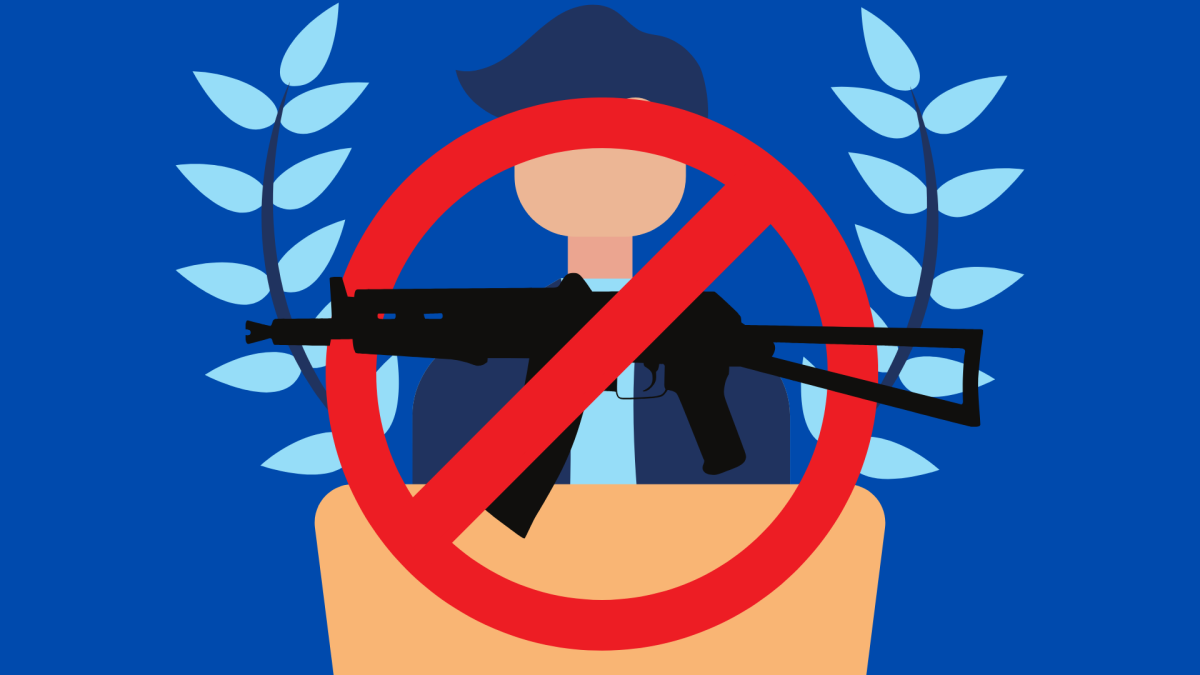
Graphic by Jillian Darnell
Politicians are people, they’re not gods. They are probably just as clueless as the average citizen when it comes to finding solutions on how to stop mass shootings in the United States.
That does not mean they should not be aware of how their comments on the issue may further stigmatize the trans community and those suffering from mental health disorders and illnesses.
I report on and go to San Jose’s City Council meetings almost every other week.
At every meeting, I watch politicians struggle to try to come up with solutions to problems that appear to be too complex to solve with one new policy.
One by one, I watch citizens or community speakers come to the podium at the front of the chamber or come on to Zoom
Some of the community speakers praise the mayor and city council members for making good decisions on policy making, and others sometimes tell them they are making huge mistakes on how to improve the city’s most pressing political issues.
Sometimes I see the council members look at one another or at the ground.
At the last meeting I went to, I saw the mayor stand up in his chair with a flushed complexion before storming off into a private room on the side of the chamber.
I can’t blame him.
Like every other week, the same man called the mayor and the council members liars and criminals, again.
I’m not angry at the government for not coming up with solutions.
I’m angry at the way we as a society talk about mass shootings.
Over and over again, I watch city officials and politicians make comments on who the shooter was and why the shooting may have happened.
In combination with their heartfelt comments and facts about how the shooting happened, I listen to vague commentary on how the shooter’s struggles with their mental health may have played a role in why the shooting happened.
At time of writing this, the U.S. has already reached a total number of 165 mass shootings this year, according to data from the Gun Violence Archive.
Seventy-seven children and 453 teens have been killed by gun violence this year, according to the same source.
There’s enough sadness and emotions going around, let’s not channel these emotions into stigmatizing other communities.
On March 27, in Nashville, 28-year-old Audrey Hale, shot and killed three children and three adults at the Covenant School, a private Christian elementary school, according to a March 27 New York Times article.
A day later during a March 28 press conference, John Drake, Chief of Police for the Metropolitan Nashville Police Department, gave the public more details about the shooter, “[He] was under doctor’s care for an emotional disorder.”
There is nothing incorrect about saying the shooter was struggling with a mental health crisis.
However, we should be able to talk about mental health without stigmatizing other communities, such as the trans community and the mental health community.
On top of this, Drake mentioned Hale was transgender during a March 27 press conference.
It’s not incorrect to state the shooter’s preferred gender, but there is a risk in how certain media organizations choose to cover the story.
Equating mass shooters with those experiencing mental health issues and the trans community creates a stereotype that can further stigmatize these groups.
After the shooting in Uvalde, Texas at Robb Elementary school, at a press conference Texas’ Attorney General, Greg Abbott, acknowledged mental health is a real issue.
Although Abbott acknowledged that mental disorders and mental illnesses are a huge issue, he also lumped shooters and those struggling with mental disorders and mental illnesses together.
Many mass shooters were reported to be experiencing a mental health crisis beforehand. But not everyone who is mentally ill is inclined to shoot someone.
Politicians and city officials are not doing a good job at communicating that these topics or the people connected to these issues are not always in the same community.
It’s because of this confusion that those struggling with mental health issues are accused of being violent and monstrous.
Comparing those experiencing mental health issues to some who Abbott described as a “demented person” makes it more emotionally difficult for those who plan to seek mental health services to do so.
Similarly, stating the shooter in the Nashville shooting was “under a doctor’s care” and was struggling with an unidentified “emotional disorder” creates a similar issue, stigmatizing those who are experiencing mental health struggles.
For example, U.S. Representative Marjorie Taylor Greene’s Twitter account was recently banned after she tweeted, “Trans Day of Vengeance” the same week the Nashville shooting happened, according to a March 29 article from Forbes.
Nearly all mass shooters were in a state of mental crisis days or weeks before each shooting, and 30% of the shooters were suicidal, according to a Feb. 3, 2022 article from the National Institute of Justice.
Some people want to ban guns and sacrifice America’s long history with gun culture.
Others want to bring more guns into the classroom so the school can defend themselves, but not acknowledge the problems that come with it.
I don’t have a solution to end mass shootings, but in the meantime let’s not create more problems by stigmatizing marginalized communities in the process.